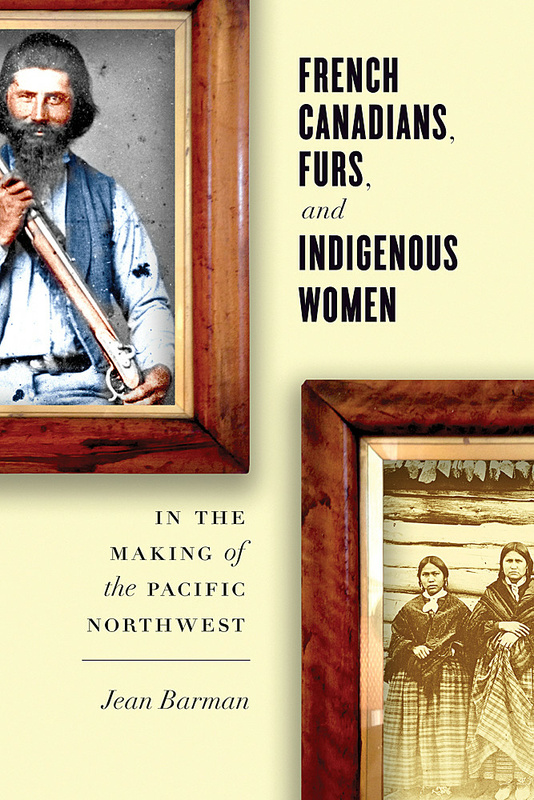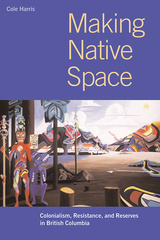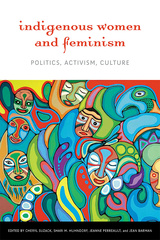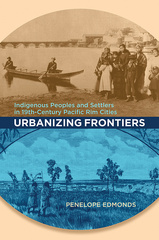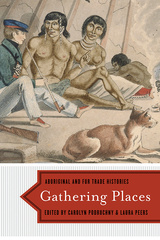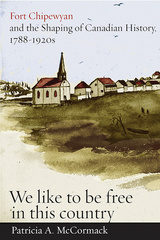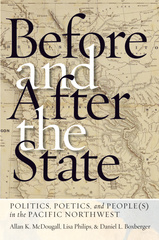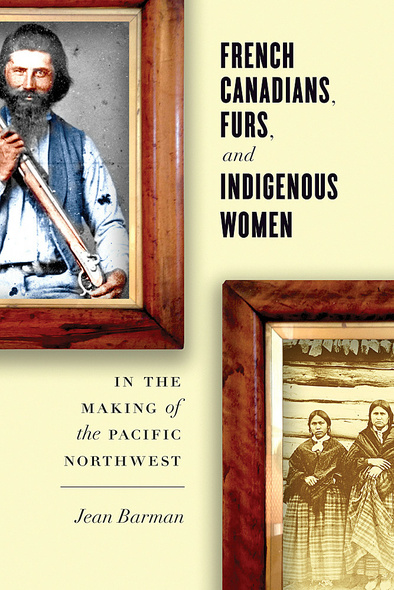
French Canadians, Furs, and Indigenous Women in the Making of the Pacific Northwest
In French Canadians, Furs, and Indigenous Women in the Making of the Pacific Northwest, Jean Barman rewrites the history of the Pacific Northwest from the perspective of French Canadians attracted by the fur economy, the indigenous women whose presence in their lives encouraged them to stay, and their descendants. Joined in this distant setting by Quebec paternal origins, the French language, and Catholicism, French Canadians comprised Canadiens from Quebec, Iroquois from the Montreal area, and métis combining Canadien and indigenous descent. For half a century, French Canadians were the largest group of newcomers in this region extending from Oregon and Washington east into Montana and north through British Columbia. Here, they facilitated the early overland crossings, drove the fur economy, initiated non-wholly-indigenous agricultural settlement, eased relations with indigenous peoples, and ensured that, when the Pacific Northwest was divided in 1846, the northern half would go to Britain, giving today’s Canada its Pacific shoreline. In the generations that followed, Barman argues, descendants did not become Métis, as the term has been used to describe a people apart, but rather drew on both their French Canadians and indigenous inheritances to make the best possible lives for themselves and those around them.
This book will appeal to scholars interested in Canadian history, especially of Quebec and British Columbia; in American history, especially of the West, and of Oregon, Washington, and Montana; in indigenous history, especially of indigenous women, metis history, the fur trade, gender and colonialism, and borderlands. It will also appeal to a general audience and to genealogists and others seeking information on French Canadians.
Awards
- 2015, Winner - K. D. Srivastava Prize, UBC Press
- 2015, Winner - The Sir John A. Macdonald Prize, Canadian Historical Association
- 2015, Winner - Basil Stuart-Stubbs Prize for Outstanding Scholarly Book on British Columbia, UBC Library
Barman’s feast of historical and genealogical data on French Canadians in British Columbia forces the reader to ponder their absence in previous BC histories, and reinforces the position of French Canadians as one of the founding peoples of that province.
The history of French Canadian fur trappers in the northwest, often mentioned in local state histories, here crosses national and cultural borders to include their interactions with indigenous peoples and stories of travels from eastern Canada to Oregon and British Columbia. This book is an essential forensic history for all people who trace their ancestry to the fur trade era of the Pacific Northwest.
In Barman’s adroit hands, the lives and experiences, hopes and dreams of the French Indian families who had a significant yet generally unremarked impact on the Pacific Northwest come to life. Rather than peripheral figures in the larger course of historical events, they were often at the center of the action - in exploring and fur-trapping expeditions, during periods of relatively peaceful negotiation and exchange, and at times of armed conflict.
Barman concludes this extensive, well-researched, and analytical work by stressing the need to view the history of the Pacific Northwest more inclusively.
This is a massive undertaking by a historian at the height of her powers. Barman has availed herself of an eclectic assemblage of sources: biographies, fur trade journals and exploration narratives, church records, and recent Canadian and American historiography on the fur trade, among others. She has seamlessly integrated this material to tell the stories of individuals and families, while at the same time providing a contextual framework for understanding the social, economic, and political trajectories of these people … French Canadian, Furs, and Indigenous Women in the Making of the Pacific Northwest is yet another fine contribution to BC history by one of its leading practitioners.
This tour de force charts in both broad strokes and careful detail the impact of French Canadian men and their Aboriginal wives and families on the transformation of the Pacific Northwest. It is a model of extensive and deep research, combined with judicious and sophisticated analysis.
Jean Barman is a nationally recognized historian and author, and a professor emeritus at the University of British Columbia. She is the recipient of the 2014 George Woodcock Lifetime Achievement Award, the 2012 Queen Elizabeth II Diamond Jubilee Medal, the 2006 City of Vancouver Book Prize, the 2004 Lieutenant-Governor’s Medal for best book on British Columbia history, and numerous other honours and awards. She is the author or editor of several books, including British Columbia: Spirit of the People (2008, Harbour Publishing), The West beyond the West: A History of British Columbia (3rd ed., 2007, rev. 1996, orig. 1991, University of Toronto Press), and Stanley Park’s Secret: The Forgotten Families of Whoi Whoi, Kanaka Ranch, and Brockton Point (2005, Harbour Publishing).
Introduction
Part 1: French Canadians and the Fur Economy
1 To Be French Canadian
2 Facilitating the Overland Crossings
3 Driving the Fur Economy
4 Deciding Whether to Go or to Stay
Part 2: French Canadians, Indigenous Women, and Family Life in the Fur Economy
5 Taking Indigenous Women Seriously
6 Innovating Family Life
7 Initiating Permanent Settlement
8 Saving British Columbia for Canada
Part 3: Beyond the Fur Economy
9 Negotiating Changing Times
10 Enabling Sons and Daughters
11 To Be French Canadian and Indigenous
12 Reclaiming the Past
Appendix
Notes
Works Cited
Index

